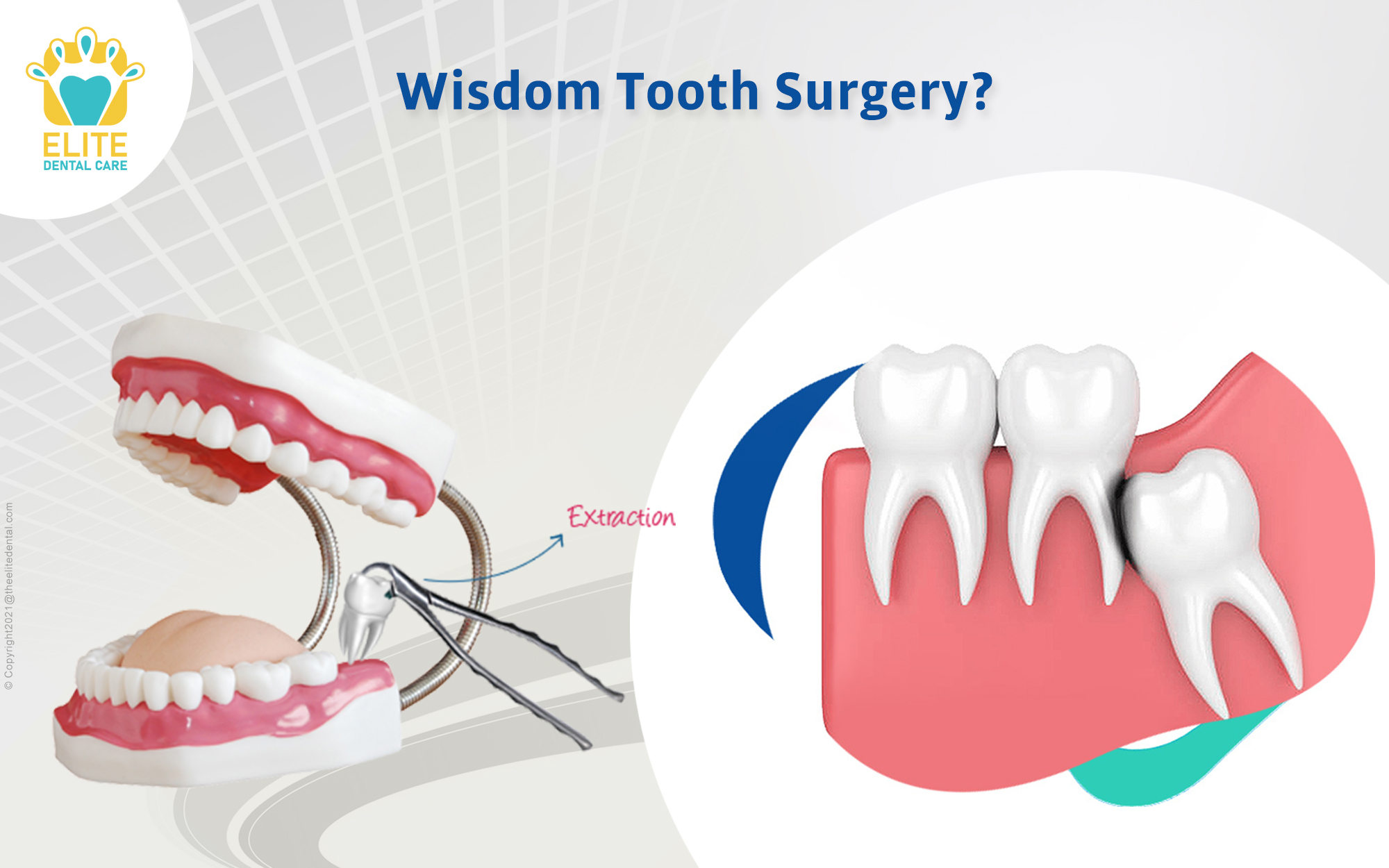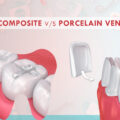
dental caredenturesoral healthTooth Extraction
edental
8 March 2022
Wisdom Tooth Surgery: Everything You Need to Know!
It is common for surgery to remove the third set of molars between the ages of 17 and 25, called a wisdom tooth. In around 40% of individuals, a wisdom tooth cannot grow naturally due to an impacted wisdom tooth. It’s best to have your wisdom teeth removed – either if impaction is present or if there’s a possibility they may cause problems – for them not to cause damage to the surrounding teeth and bones.
Wisdom tooth surgery – what does it involve?
Surgery to remove wisdom teeth is usually carried out in an outpatient setting by an oral surgeon or dentist. An X-ray and exam by your dentist may indicate that your wisdom teeth may cause you dental problems in the future or that they have an impacted position. Therefore, it is true that not all people have wisdom teeth, but most do have one to four.
Your surgeon will proceed with cutting into your gums and removing the tooth, either all at once or in pieces, while you are under anesthesia, which could include nitrous oxide, known as laughing gas, or intravenous sedation. Depending on the complexity of the procedure, a surgeon will decide which level of sedation you should receive and the number of extractions required.
The process of wisdom teeth removal
Having your wisdom teeth checked regularly by your dentist will allow you to monitor their development. If they are causing problems or have become impacted, they may discuss them for removal. These are causing such issues mentioned below:
- Mouth or Gum Infections
- Deficiency in bone
- Tooth decay
- Periodontal disease
- Tooth damage caused by the surrounding teeth
The dentist may advise you to have wisdom teeth removal surgery even if you do not experience any current symptoms in order to prevent potential problems from developing. It is challenging to maintain good oral hygiene while wisdom teeth are present because they grow in an area that is hard to clean.
Your dentist will suggest you go to an oral surgeon in case you require to undergo any procedure. Before beginning your surgery, your surgeon will examine your records and get the X-rays done (additional), as well as schedule a consultation with a cosmetic surgeon to confirm the extent of your surgical requirements.
Preventing future dental problems
A dentist will recommend wisdom tooth removal surgery to prevent future problems. There are varying opinions about the wisdom of removing impacted wisdom teeth (symptomatic). The problem can be challenging to recognize. The following are reasons for preventive extraction:
- Wisdom teeth that show no symptoms can still harbor disease.
- Tooth erupting in a confined space makes it challenging to reach and clean it properly.
- Younger children are less likely to experience severe complications with wisdom teeth.
- Surgical procedures for the elderly may be complex and prone to complications.
What is the risk of removing wisdom teeth surgery?
There are typically no long-term complications associated with wisdom teeth extraction. When impacted wisdom teeth cannot be removed with a simple extraction, surgery may be necessary, which may require making an incision in the gum tissue as well as removing bone. Occasionally, complications may include:
- A painful dry socket results from the breakdown of the post-surgical blood clot around the surgical site
- A bacterial or food particle infection in the socket
- Dental cavity, nerves, jawbone, or sinus damage nearby
Preparing for surgery: what should I do?
Prior to your procedure, you should discuss your concerns and queries with your surgeon. You can ask them what you should do in the days prior to surgery and what you need to plan for the recovery period. Your doctor can also provide you with information about the type of anesthesia you will undergo and how you’ll feel following surgery.
Wisdom teeth surgery can be costly depending on the severity of the impact and number of teeth to be removed. Consult your dentist, surgeon, and insurance provider for information about your benefits.
If you plan on recovering from surgery, you may want to purchase liquid-based soft foods that are easy to eat afterward. There are a variety of foods that are easy to consume without chewing, such as smoothies, applesauce, oatmeal, yogurt, and other convenient foods.
A walkthrough of the procedure:
There are three types of anesthesia. Your dentist or surgeon may employ anyone on you depending on the severity of your dental condition.
- Local anesthesia:
Your surgeon will inject you with one or more of these local anesthesia injections near the wisdom teeth. Thereafter, he or she will apply a substance to your gums to numb them. Although you will be wide awake during the tooth extraction process you will not experience pain.
- Sedation anesthesia:
Sedation anesthesia is given by your doctor via an intravenous line in your arm. It does numb you during the procedure, you don’t feel pain and won’t retain memory of the surgical process.
- General anesthesia:
It is recommended in exceptional cases to take these doses. The medication may come by way of inhalations or an IV in the arm, and you then lose consciousness, though your surgical team closely monitors your blood pressure, breathing temperature, and fluid intake. You will not experience pain, or retain any memory of the procedure.
What happens after the procedure?
You will slowly be brought out of sedation after the procedure is complete. During the process, you will chew a gauze to help blood clot. You may experience nausea, dizziness, and shivering immediately after the surgery.
Your specialist will let you go home once you’re stable and breathing normally. The recovery room is short. After surgery, you will feel dizzy and experience a sensation in the swollen area. Initially, pain may be minimal, but it is likely to increase as the local anesthetic wears off.
Conclusion
The removal of wisdom teeth is a standard dental procedure with little risk of complications. In order to ensure a successful recovery, you should closely follow the post-operative instructions you receive, especially on the first seven to ten days following your surgery. If you still have any confusion about the surgery, you can ask your dentist directly so that you will prepare for the surgery,




